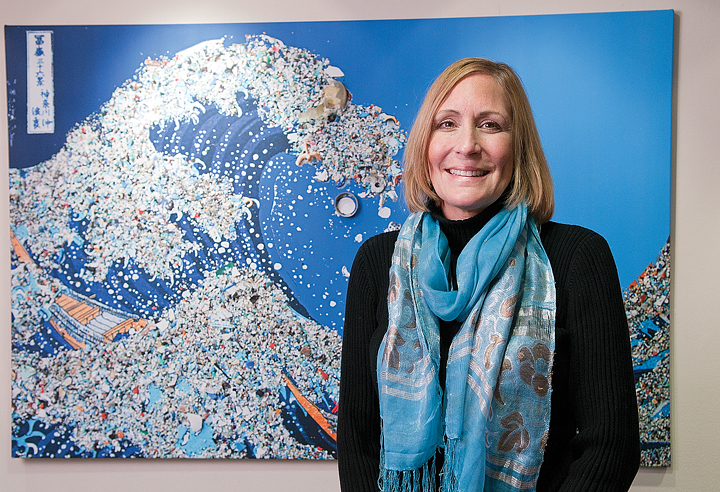While ocean conservancy may seem like an effort that may only be exercised surfside, there are several steps anyone can take at home, near or far from the tideline, to help protect the ocean and its inhabitants. Bonnie Monteleone, director of science, research and academic partnerships for Plastic Ocean Project, Inc. described ways beachgoers can prevent plastic from reaching the ocean.
“Before you go to the beach, make an assessment of what you’re bringing. If you are going to use single-use things, have an extra bag to put your trash in and take it home,” she said. Monteleone added people who bring their own small trash bags to the beach help prevent trashcans from overflowing.
People can help protect the ocean from inside their homes by ensuring the face and body washes they use do not contain microbeads, Monteleone said, which are 5 millimeters or smaller in diameter and commonly used in exfoliating products.
“Microbeads, which are designed to wash down the drain, are so small that now even our microzooplankton can ingest them. Now we’re talking about the very base of the food web,” she said. “It’s a huge problem because those plastics are being ingested by small fish, and then bigger fish eat the smaller fish. The plastics from those can accumulate up the food web.”
To avoid plastic microbeads, consumers can check the ingredient label for the ingredient polyethylene or -polypropylene. Natural alternatives to microbeads- include walnut shells, sugar, salt, bamboo and apricot seeds.
Lindsey Deignan, vice president of the Surfrider Foundation’s Cape Fear chapter, said chemical fertilizers are another threat to aquatic life because rain washes them from yards into bodies of water. This increases the amounts of nitrates and phosphates in the water, leads to the overgrowth of algae and results in a competition for space, sunlight and oxygen.
“One of the ways to really cut back on fertilizers is to start using native plants and things that naturally grow in the area where you live,” Deignan said. “Plants that are conditioned in an environment don’t need excess fertilizer in order to grow.”
Deignan recommends using compost instead of commercial fertilizers.
“It puts a lot of nutrients back into the soil,” she said.
The Surfrider Foundation encourages people to properly dispose of used motor oil at a gas station or approved collecting area for recycling. Oil dumped in a drain or field will reach a body of water.
The Cape Fear Surfrider chapter organizes beach cleanups. It also encourages people to create their own beach cleanup events, or to pick up trash individually.
“You certainly don’t need a clean up to pick up trash on the beach,” Deignan said.
email [email protected]




